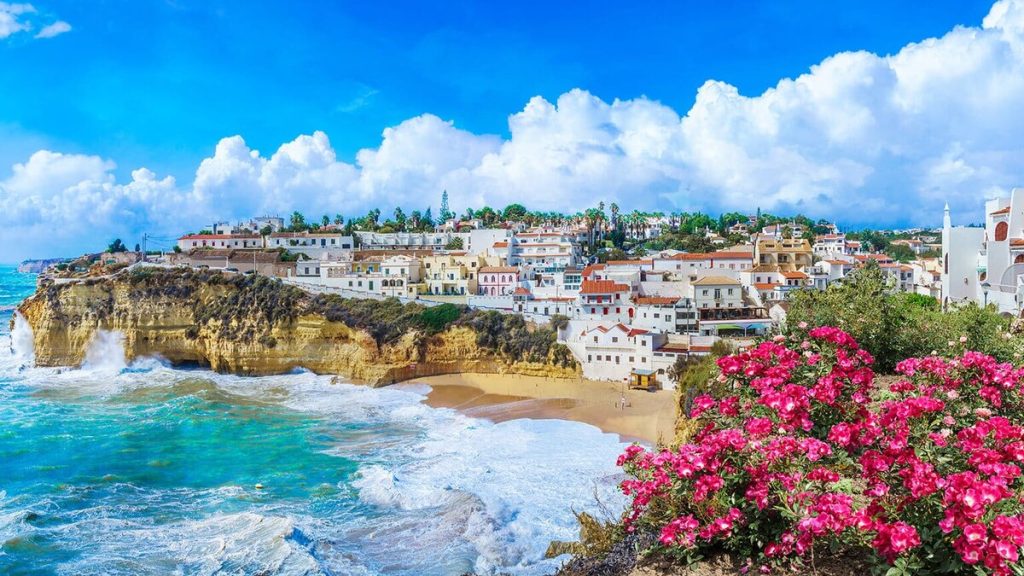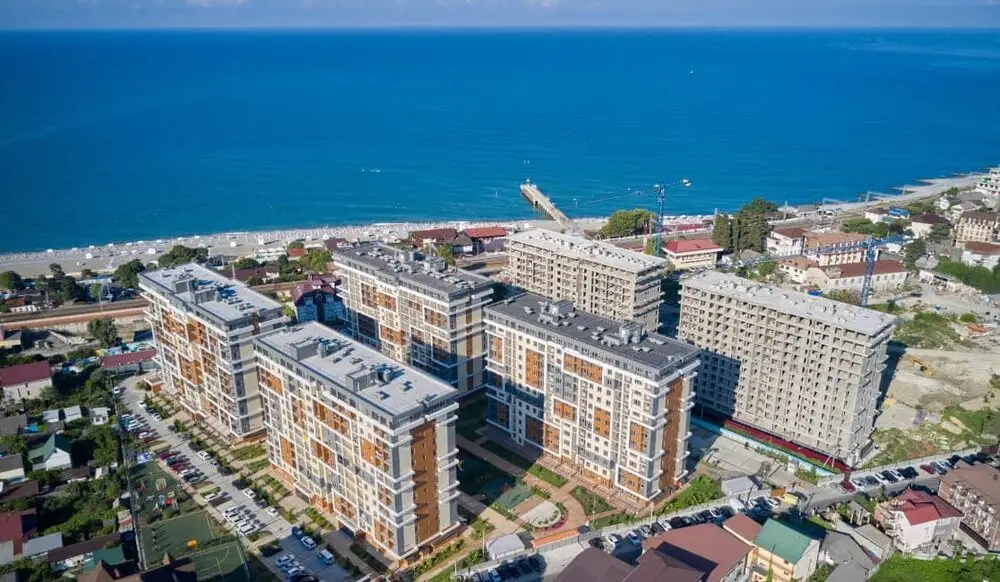The decision to move to another country is rarely taken impulsively. More often, after a series of logical “ifs” and practical “whys”. Whether it is worth moving to Portugal is a question that combines climate, taxes, citizenship and cost of living multiplied by personal ambitions. The answer is not in generalised ratings and tourist photos, but in numbers, systematicity and nuances, which are not shouted about in advertising brochures.
Quality of life and the cost of living
The cost of living in Portugal is characterised by moderation in basic expenses and unpredictability in additional costs. Lisbon and Porto lead the way in terms of prices: renting a flat in the centre starts at €1000 per month, lunch in a café at €10, and a bus pass at €40. In rural areas the figures are almost halved.
Moving to Portugal often starts with a look at the cost of living – a key factor for families and freelancers. The budget for one person with modest consumption is from €800 per month, including rent in the suburbs, food, transport and mobile phones. An extra €300-500 for comfort.
Law and order: what gives you a residence permit in Portugal
 The Portuguese residence permit programme opens access to the labour market, education, medicine and movement within the EU. There are options through investment, contract, study or even passive income from remote activities. The most popular route is through a D7 visa: you just need to prove a monthly income of €820 (minimum), rent a home and open an account.
The Portuguese residence permit programme opens access to the labour market, education, medicine and movement within the EU. There are options through investment, contract, study or even passive income from remote activities. The most popular route is through a D7 visa: you just need to prove a monthly income of €820 (minimum), rent a home and open an account.

The residence permit is issued initially for 2 years, then extended. After 5 years, you can obtain a permanent residence permit or apply for citizenship, provided you pass a basic language proficiency test. The procedure itself takes about 6 months with proper preparation.
Weather without winter and hot summers
Climate remains one of the most underrated factors in the question of whether it’s worth moving to Portugal. Unlike neighbouring Spain, it has mild winters (up to +15°C) and mild summers (average +28°C). The Atlantic Ocean mitigates temperature spikes and the level of sunshine is over 270 days per year.
This stability makes it possible to utilise the sun’s energy all year round, save on heating, get around on foot or by bicycle. In rural areas of the south, heating costs almost disappear – an important economic advantage.
Should you move to Portugal: the pros and cons from an expat’s point of view
Reviews of real people from different countries record high adaptation. Many note the friendliness of the locals, tolerance and unhurried pace of life. The country’s rating is consistently high, as well as the level of security – it is among the top 5 countries in the world.
However, the disadvantages of life in Portugal are also present. Slow service, bureaucracy, closed labour market for unskilled specialists are common complaints. Especially often – from young people without knowledge of Portuguese.
Immigration requires not only documents, but also resistance to mental restructuring. It is difficult to expect European service at the Latin American speed of work of institutions. For example: registration at the tax office sometimes takes a week if you have all the papers.
Work and taxes: who benefits
The IT sector, online services, tourism and agriculture are the main areas for expats to work in. The minimum salary in 2025 is €820. The average is €1400-1600, but only in major cities.
Taxes remain a hot topic. Residents are obliged to pay up to 48% income tax (on a progressive scale), but the NHR (Non-Habitual Resident) programme allows you to optimise deductions for 10 years. It is especially favourable for pensioners and freelancers with income outside the country.
Business is actively developing: the small and medium segment receives subsidies and access to EU funds. Opening a company takes up to 3 days if you have an NIF and a local account.
Where to live: cities with character
The cities of Portugal are not alike. Lisbon is dynamic, Porto is traditional, Braga is religious and technological, Coimbra is the student capital, Faro is beachy.
Moving to Portugal to smaller cities can reduce housing costs by 30-40%, but limits access to work and medical centres. But quietness, safety and greenery are in abundance.
Health and education: expectations and reality
Health care in the country is public and private. Free basic care is available through the SNS number, but queues for specialists reach several weeks. Private clinics are faster, with the price of a visit starting at €60.
Education depends on language and age. Public schools accept free admission, but instruction is in Portuguese only. Private and international institutions require contributions from €400 to €1200 per month.

Expats are actively investing in their children’s education in international schools because of the flexibility of programmes and the possibility of transferring to European universities without language barriers.
What the numbers say: a final breakdown
The advantages of living in Portugal are obvious: access to the EU, climate, moderate spending, tax preferences, security. The country offers easy integration for freelancers, retirees, start-ups.
On the other hand, living in the country the pros and cons are unevenly distributed. Not everyone will get quick access to the labour market, not everywhere quality medicine is available. Moving without preparation is a risk.
Assessment by key parameters:
- Cost of living: moderate, but varies by region.
- Climate: mild, with minimum fluctuations.
- Safety: high, especially in small towns.
- Taxes: optimisation is possible.
- Citizenship: after 5 years.
- Education and medicine: high quality but nuanced.
- Feedback: positive, subject to adaptation.
Whether it is worth moving to Portugal depends on your specific goals and willingness to change. The country offers a comfortable environment, but requires awareness when choosing a region, status and income model. A move with a clear strategy will have maximum effect.
Whether it is worth moving to Portugal: conclusions
 Whether it is worth moving to Portugal depends on your goals and readiness for change. The country offers access to the EU, a mild climate and favourable living conditions, but requires adaptation and a clear strategy. The move is justified if you take into account not only the advantages, but also the hidden nuances: taxes, bureaucracy and peculiarities of local life.
Whether it is worth moving to Portugal depends on your goals and readiness for change. The country offers access to the EU, a mild climate and favourable living conditions, but requires adaptation and a clear strategy. The move is justified if you take into account not only the advantages, but also the hidden nuances: taxes, bureaucracy and peculiarities of local life.
 en
en  ru
ru  de
de  ar
ar  es
es  nl
nl  hi
hi  fr
fr  it
it  pt
pt  el
el 













